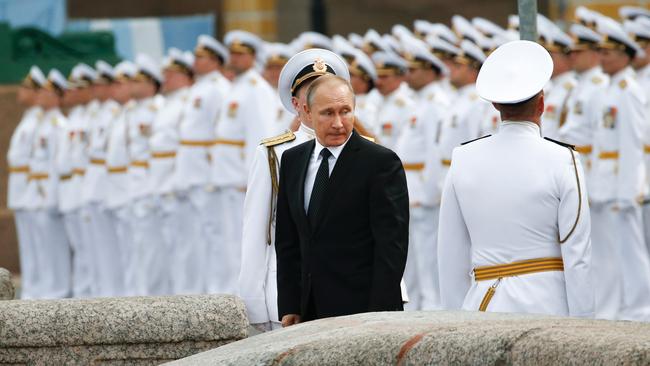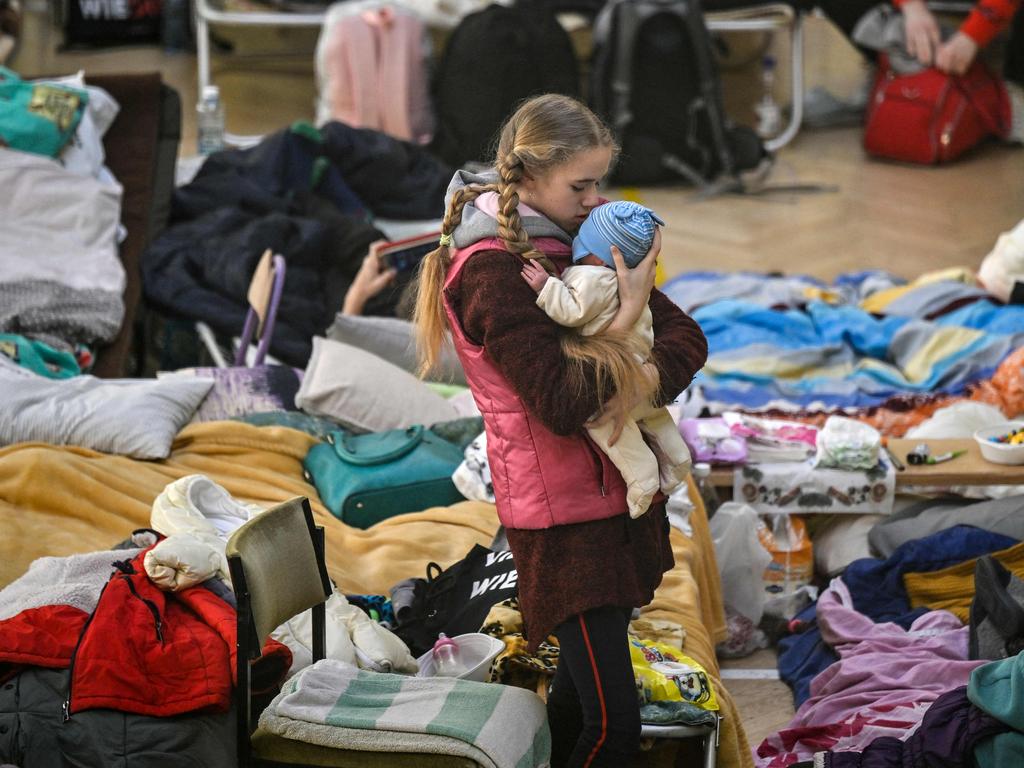
In part, that reflects the advantages determined defenders have in repelling foreign attacks, including greater familiarity with the terrain and shorter supply chains, as well as the galvanising effects of patriotism and of having much more at stake.
But while those factors are undoubtedly significant, the difficulties also reflect structural weaknesses that plague Russia’s military – weaknesses that are inherently bound up with the nature of Putin’s regime.
Put in the language of political science, that regime is a personalistic dictatorship: that is, a dictatorship where power is almost entirely vested in an individual, rather than in an institution such as the army or a political party.
Built on what has been called neo-patrimonialism, the regime rests on an exchange in which Putin secures the loyalty of strategic elites by granting them an essentially unfettered licence to extract rents, including through rampant corruption, tax evasion and state-sanctioned violence.
The extent of those rents is hard to quantify, but an indication can be obtained from an authoritative study which concluded in 2017 that as much financial wealth was held by rich Russians abroad as was held by the entire Russian population in Russia itself.
And while Putin’s own wealth is notoriously opaque, Bill Browder, an investor in Russia who became one of Putin’s leading critics, has claimed he has a net worth of $US200bn ($273bn), making him one of the world’s wealthiest individuals.
Of course, the mere fact Russia is a dictatorship does not condemn it to military ineffectiveness: dictatorships can display very high levels of war-fighting capability, as North Vietnam showed during the Vietnam war. But personalistic regimes are much less effective than other dictatorships at organising, mobilising and projecting force.
That is, to begin with, because their leaders are exceptionally vulnerable to violent displacement. As Samuel Huntington, one of the 20th century’s greatest political scientists, argued in his magnum opus, Political Order in Changing Societies (1968), the extreme concentration of power at the top means that to succeed a coup needs to arrest or assassinate only the leader; and concentrated power also means that displacing the leader can yield very high returns, increasing the incentives for coups to occur.
It is therefore unsurprising that studies find that coups are about twice as frequent in highly personalistic regimes as they are in one-party states, which can have relatively well-institutionalised procedures for managing elite rivalry.
That matters because the threat of violent displacement induces personalistic dictators to implement coup prevention measures that reduce military effectiveness.
Thus, Vladimir Lenin and then Joseph Stalin (who lived in perpetual fear of being overthrown) ensured that military power was always dispersed among distinct units, in a structure that remained broadly in place under their successors.
Having inherited that structure when the Soviet Union collapsed, Boris Yeltsin – who had stared down a coup in 1991 – pushed it further, adopting a “divide and rule” strategy that blurred the division of labour between the militarised services and pitted them against each other.
Putin has continued along that path, even creating an entirely new service, the National Guard, which is under his direct control and seems intended to counterbalance not only the Federal Security Service (the former KGB) but also the Russian army.
According to Bettina Renz, a leading expert on the Russian military, the overall effect is that nearly 40 per cent of the Russian force structure is not integrated into its central command.
Moreover, the services that are excluded from the military control structure tend to be much more professionalised than the regular army, which, despite reforms that began in 2008, still relies on conscripts for a third or more of its service personnel.
There are, for sure, highly capable militaries that depend on conscription; however, the decision that was taken early on in Russia’s modernisation program to address chronic draft evasion by reducing the duration of military service from two years to one has slashed training levels, with many conscripts not serving long enough to take part in any large-scale military exercises.
Quite a few of the invading troops will therefore have had no experience whatsoever of combat conditions, much less of complex, live fire, operations in hostile terrain.
To make matters worse, the corruption that – as in other neo-patrimonial regimes – afflicts Russian society has not spared the military-industrial complex.
Anatoly Serdyukov, Russia’s defence minister from 2007 to 2012, made a determined attempt to stamp out the graft, theft and fraud that infected every part of the defence complex under Yeltsin and to improve resource allocation between the services; but he was sacked for his efforts and replaced by Sergei Shoigu, a time server who has allowed corruption to flourish, leading to defective equipment and widespread shortages of spare parts.
All those difficulties pale, however, compared with what the ancient Greeks regarded as autocracy’s fatal flaw: the vulnerability of the dictator to hubris, which is magnified by the extreme personalism of Putin’s regime.
In effect, comparing Putin’s decision-making with Serhii Plokhy’s forensic analysis of the records of the Presidium of the Communist Party’s Central Committee during the Cuban missile crisis, the striking difference is the complete absence of the checks and balances that helped rein in Nikita Khrushchev’s wilder impulses – such as the stubborn opposition of Anastas Mikoyan, the powerful first deputy chairman of the Council of Ministers, to Khrushchev’s “adventurism”.
Putin, in contrast, acts alone; and in doing so he bears out Sophocles’s warning that “There is no greater evil among mortals than want of counsel”. Delivered by a messenger who is explaining the catastrophic errors of judgment that led to the terrible punishment inflicted on Creon, dictator of Thebes, the reminder from the gods promises those who “speak but do not listen” that while they may “climb to the highest”, everything they value will “plunge to ruin”.
None of that means Putin’s invasion will necessarily fail. On the contrary, the numerical balance of forces remains overwhelmingly in his favour and, as Stalin grimly observed, quantity has a quality all of its own.
But if he presses ahead despite mounting losses, it will be by taking barbarism to its limits, as the Russian forces have in Syria, reducing Ukraine to a wasteland while decimating the living standards of ordinary Russians.
That, it seems, is liberation, Putin style. Should he be allowed to succeed, the West will not only have compromised its vital interests but pounded one more nail into the coffin of its principles.








As the Russian army grinds ahead in its efforts to make a desert and call it peace, the invasion of Ukraine has proven to be anything but the smoothly executed “special operation” Vladimir Putin announced three weeks ago.